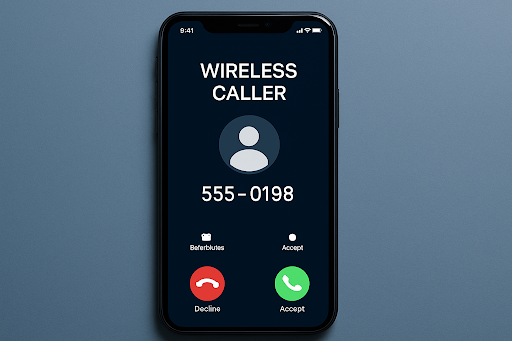
Cybersecurity for Small Businesses
The cyber-world is a concern, and hence, present-day small businesses must outgrow the days of ignoring the implementation of cybersecurity. A small business operates with little security provisions, and presently, that makes it a soft target for increasing cyber-attacks.
When these attacks do occur, they can cause loss of money, breaches of data, and reputational damage. All forms of security precautions must be put in place to protect the data belonging to business operations, as well as the proprietary information.
Cybersecurity tips for small business owners: Use strong passwords, enable firewalls, update software, back up data, and train employees to spot phishing and other cyber threats. Stay protected.
This guide will go over several significant cybersecurity tips for small business owners and create a safe digital environment.
Why Cybersecurity Matters for Small Businesses
Most small business owners think they are safe from cybercriminals and that all the big corporations are the ones being targeted. Well, the actual situation is quite different. Here is why cyber security is essential for small businesses:
1. Small Businesses Are Major Targets
Cybercriminals tend to view small businesses as easier targets offering their defenses. Reports show that more than 40% of cyber attacks target small businesses.
2. Damage to Finance and Reputation
A cyber attack can bring enormous losses, along with legal sanctions and unwanted notoriety, thus turning into a near-impossible task to recover.
3. Regulatory Compliance Requirements
There are several industries and mandates under which businesses must comply with specific regulations for data protection, such as in the case of GDPR or CCPA for individuals and organizations. A violation of these rules results in a penalty.
4. Cyber Threat Inundation Growth
The continuously changing threats such as phishing, ransomware, and data breaches mean that small businesses must, therefore, implement proactive security measures in order to remain safe.
Essential Cybersecurity Tips for Small Business Owners
1. Enforce Strong Password Policies
Passwords are the first line of defense against cyber threats, so here’s how to secure passwords even more:
- Implement multi-factor authentication (MFA)
- Repeat it for Software and Systems Update
2. Burglars in cyberspace
Burglars in cyberspace usually take advantage of the vulnerabilities existing in outdated software. Some of the techniques employed to avert those risks include:
- Activating automatic updates for operating systems, applications, and plugins.
- Regular antivirus and firewall protection software updates.
- Testing for old software through periodic security audits.
3. Educate Employees on Cybersecurity Best Practices
Cyber incidents are heavily attributed to human error, and giving training will prevent a security breach.
- Regular training on phishing, malware, and social engineering should be conducted.
- Policy documents that clearly state sensitive information should be provided.
- Encourage employees to report any suspicious emails and activities.
4. Use Secure Wi-Fi and VPN Connections
Unsecured networks can provide hackers with a means of hacking business data.
- Secure the business Wi-Fi with a strong password and WPA3 encryption.
- Always use a VPN to gain secure access while working.
- Restrict access to sensitive information according to the user’s role.
5. Backup Data Regularly
Data loss can occur due to cyberattacks, system failures, or human errors. Regular backups help recover lost data quickly.
- Implement automated backups for critical business data.
- Store backups in secure, offsite locations or cloud services.
- Regularly test backup restoration procedures to ensure effectiveness.
6. Secure Business Emails from Phishing Attacks
Phishing attacks trick employees into revealing sensitive information.
- Train employees to identify phishing emails and avoid clicking suspicious links.
- Use email security tools to filter spam and malicious attachments.
- Implement DMARC, DKIM, and SPF protocols to secure business email domains.
7. Install Firewalls and Endpoint Security
Unauthorized access to business networks is intercepted by firewalls and endpoint protection systems.
- A well-configured firewall should always refuse all access to malicious traffic.
- You must install endpoint security software on all business devices.
- Network segmentation should limit access to core systems.
8. Restrict Access and Use the Principle of Least Privilege (PoLP)
It’s a given that every employee should not be entitled to access every single bit of data and every system.
- Only provide access to the information essential for the actual work position.
- Through role-based access control (RBAC), permission is controlled and managed.
- Regularly review and revoke any access granted to a former employee.
9. Develop an Incident Response Plan
All businesses can respond appropriately to a cyber attack provided that there is a proper incident response plan in place.
- Define roles and responsibilities during a security incident. Create a step-by-step plan to identify, contain, and remediate that threat.
- Regular testing and updating of the response plan are also essential.
10. Work with Cybersecurity Experts
Hiring external cybersecurity professionals strengthens your in-house security capability shortage.
- Engage a cybersecurity consultant to conduct risk assessment.
- Make use of an MSSP for periodic monitoring.
- Be updated on current trends and threats in cybersecurity.
Common Cyber Threats Small Businesses Face
1. Phishing Attacks
False messages or emails are sent by cyber thieves to lure an employee into phishing passwords or installing malware.
2. Insider Threats
An internal threat occurs when current or former employees abuse access to steal or damage business data.
3. Malware and Viruses
Malicious software and viruses are designed to steal business data, disrupt operations, or gain unauthorized access to systems.
4. Data Breaches
Data Breaches: Unauthorized access to sensitive business data, often due to weak security measures.
5. Social Engineering
Social Engineering Manipulates employees to disclose private details through falsehoods.
Cybersecurity Tools Every Small Business Should Use
1. Antivirus and Anti-Malware Software
Protects devices from malware, ransomware, and other cyber threats.
2. Password Managers
Securely stores and generates strong passwords for all business accounts.
3. Secure Cloud Storage
Encrypts business data stored in the cloud for added protection.
4. Security Awareness Training Platforms
Educates employees about cybersecurity best practices to reduce human errors.
Conclusion:
Cyber security makes an interesting and unbearable subject for a person trying to build a digital space in a secure manner for the customers, protect the data, and keep on running the business.

